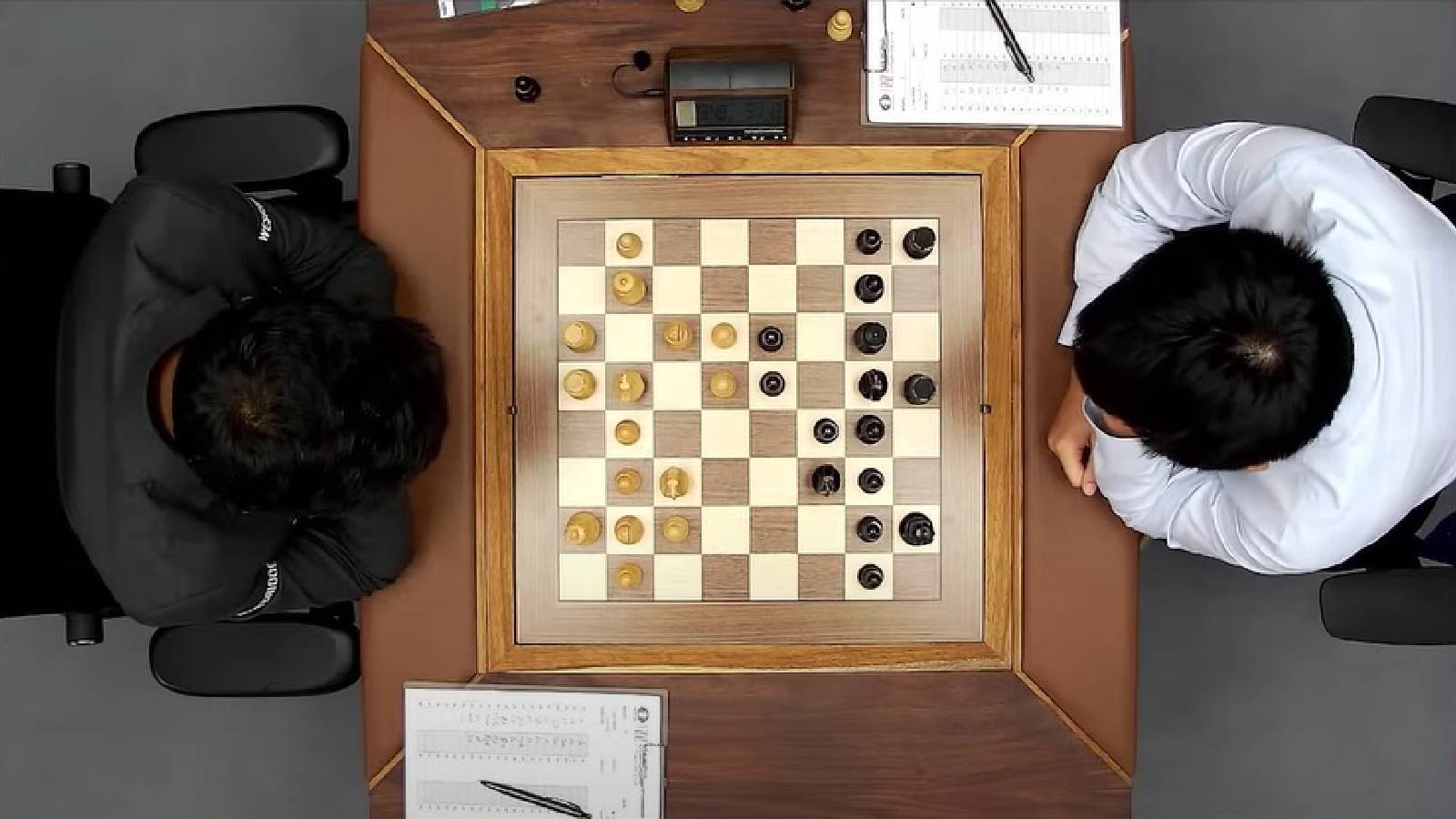The 2024 World Chess Championship has one distinct feature that separates it from the last edition between Ding Liren and Ian Nepomniachtchi. Unlike the 2023 event, both Gukesh and Ding have preferred to spend most of their time at the board rather than slinking off to their private lounges.
This has meant spending as much as five hours on the table, as one saw in Game 7. A lot has been written about the chairs the two players are using at the World Championship. But what also merits an honourable mention is the table being used.
It’s a bespoke creation, made over two weeks specifically for the World Chess Championship, by Singaporean furniture makers Roger&Sons.
There are little details that make the table stand out: unlike an ordinary table, this one has the chessboard sinking inside it rather than the board being placed on top of the table. Since both players will be spending hours on it, mulling moves with their hands planted on the table cradling their heads, two sides of the table also have cushioning for players’ comfort.
The wood used in the table comes from local Singaporean trees called angsana and khaya.
For the organising committee, these little details matter a lot.
“Tables, chairs, lights, toilets, carpets (certainly we have to prevent any creaking sounds), the temperature of the room, the sound that the AC is making, these are things where we have to be mindful of the players’ wishes,” grandmaster Kevin Goh, Chair of the Organising Committee for the World Championship, had told The Indian Express before the event started.
Interestingly, FIDE has specific details regulating chess pieces, boards and even tables in the FIDE Handbook.
The rules about the playing table mention: “The length of the table is 110 cm (plus or minus 15 percent), the width of the table is 85 cm (plus or minus 15 percent) and the height of the table is 74 cm (plus or minus 15 percent).”
Rules of engagement
The FIDE handbook also has a long list of specifications just for the wooden army on the board.
“The height of the pieces, in descending height order, is as follows: King: 9.5 cm, Queen: 8.5 cm, Bishop: 7 cm, Knight: 6 cm, Rook: 5.5 cm and Pawn: 5 cm. These dimensions may differ by up to 10 percent, but the pieces must remain in descending height order. The diameter of a piece’s base should measure 40-50 percent of its height … The top of the Bishop may bear a notch or be of a special colour clearly distinguishing it from a pawn. The ‘white’ pieces may be white or cream, or other light shades of these colours. The ‘black’ pieces should be brown or black, or other dark shades of these colours. The natural colour of wood (walnut, maple, etc) may also be used. The pieces should not be shiny and should be pleasing to the eye,” the guidelines mention.
As for the board, which serves as the battleground for the 32 pieces, the FIDE handbook has this notable rule: “The boards must not be shiny, and have a dull or neutral finish. A combination of colours, such as brown, or very light tan and white, cream, off-white ivory or buff may be used for the chess squares in addition to natural colours.”
The Gukesh-Ding match is being played in a glass case, called the fishtank, which is a soundproof room with mirrored glass.
There are also specifications in the FIDE Handbook for the playing hall itself.
“The temperature (in the playing hall) should be 21-23°C. Lighting shall be at least 450 lux. Lighting should not cast shadows or cause pinpoints of light to be reflected from the pieces. The floor should be carpeted.”


